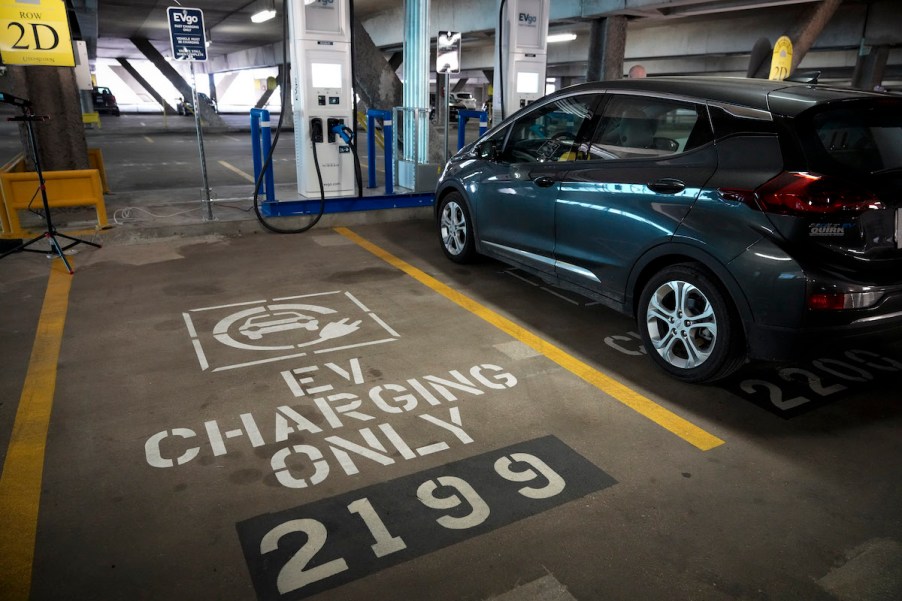
Gas-Powered Cars as a Thing of the Past Was a Crazy Idea, but Now It Is Becoming a Reality
When gasoline cars first roared to life in 1886, nobody probably thought gas-powered cars would die. (Presumably, few people thought the same thing about steam engines before internal combustion engines came around.) However, electric vehicles arrived to challenge their gas-powered counterparts. Interestingly, EVs have been around as long as gas cars, but not until the beginning of the 21st century did EVs become popular and pick up some, ahem, steam. Now automakers are moving toward phasing out gasoline vehicles and producing only EVs.
Moving away from gas-powered cars was once a bizarre concept

According to NPR, when the advocacy group Coltura in 2017 urged people to stop using gas-powered cars, the idea was met with mockery and even labeled “crazy.”
Historically, the U.S. has been largely dependent on gasoline and oil, and the idea of having cars powered by any other type of fuel was laughable. Plus, popular muscle cars, sports cars, and exotic cars have always been known for powerful internal combustion engines. But now, even makers of high-performance automobiles, such as Porsche, are making EVs.
EVs are pushing gas-powered cars out of the picture
Tesla may have led the charge into the EV market, but the automaker is far from alone. Rivian and Ford are making electric trucks, and the Blue Oval is also making fully electric or hybrid versions of virtually every model in its lineup, including the Mustang. Other automakers, such as Toyota, General Motors, Kia, Honda, and Volkswagen, are prominent players in the EV game.
Eventually, gas-powered cars will be a relic of the past. And whether you like it or not, you will have to trade your gasoline car for an electric one.
What does the push toward EVs mean for the auto industry and, more important, the planet?
As countries pass mandates to phase out gas-powered cars, automakers must develop electric models or face extinction. And it might happen sooner than you think.
States such as California and New York plan to end all sales of gas-powered cars within the next 15 years. Though 2035 might seem far off, developing the infrastructure to make this idea a reality won’t happen overnight. Some more skeptical automakers think even 2040 is unrealistic. But the fact remains: The move from gas-powered cars to EVs is coming. And for our planet, it can’t come soon enough.
The reduction of fossil fuels is one of the steps toward arresting climate change that experts agree is the most significant measure we can take. Most countries are moving toward zero-emission vehicles and banning automobiles producing carbon emissions. But eliminating gas-powered cars is not enough. Developing charging and manufacturing infrastructure that does not create more CO2 emissions and negates any benefit from an EV is equally important.
Though the change might not happen in the next decade or even the next two decades, eventually, gas-powered cars will be out, and EVs will be in. And eventually, much like pumping gas became the norm 100 years ago, stopping to charge your car will be a regular part of your routine, whether it’s daily, weekly, or even monthly, which would be cool. And 100 years from now, maybe we will be driving DeLoreans powered by plutonium. Or lightning.


